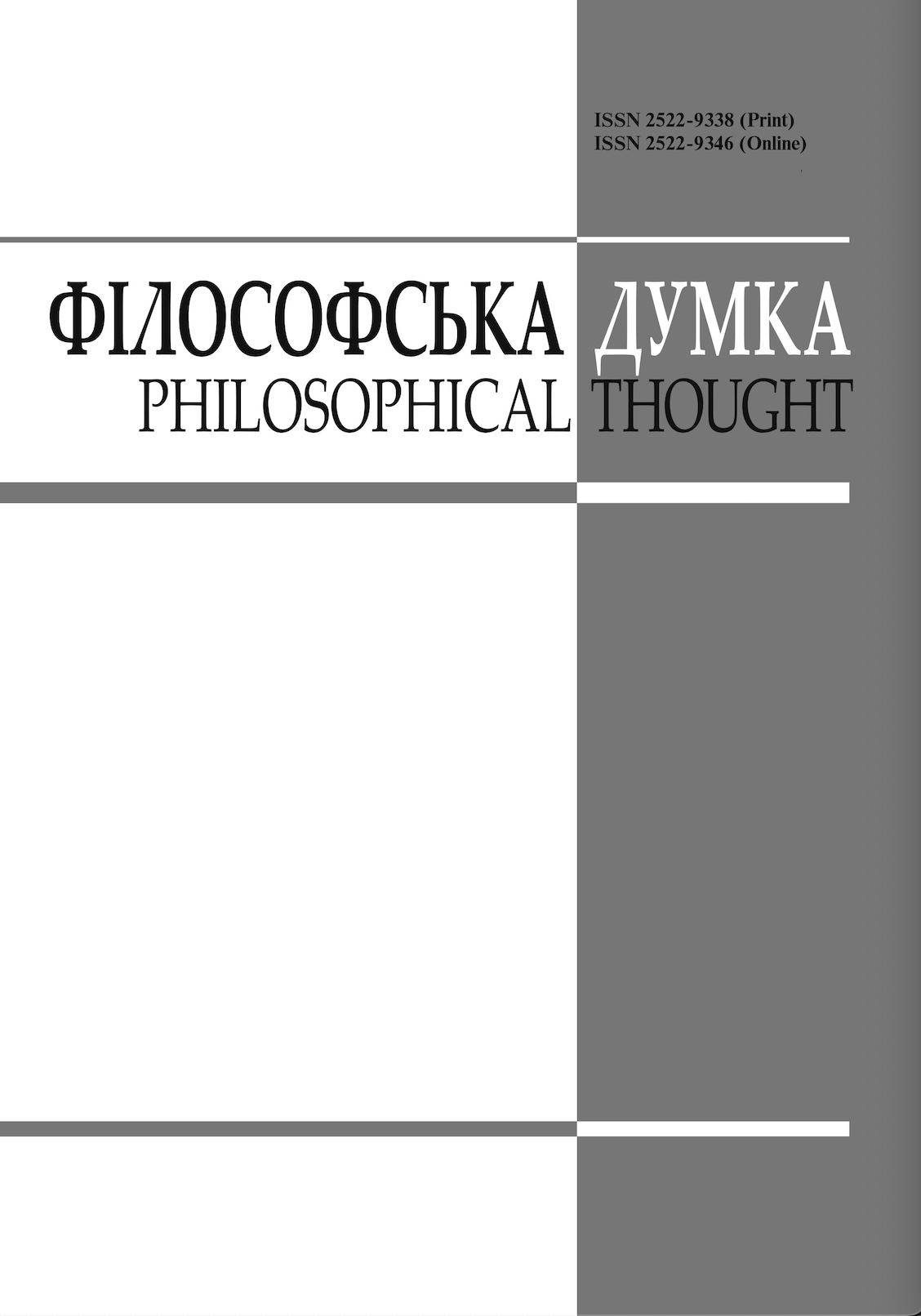GLOBAL PROBLEMS OF HUMANITY IN THE CONTEXT OF THE RUSSO-UKRAINIAN WAR
DOI:
https://doi.org/10.15407/fd2025.03.105Keywords:
global problems of humanity, war and peace, ecological ethics, ecological imperative, anthropocentrismAbstract
The article is dedicated to the global problems of humanity in the context of the Russo-Ukrainian War. It shows that the two pressing global problems humanity faces in the 21st century are the problem of war and peace, and the problem of ecology. These problems hold significant theoretical and practical importance. While one problem or the other may take center stage in human history at different times, their undisputed and constant interconnectedness is a well-established fact.
It is argued that the ecological situation in Ukraine is significantly deteriorating due to the Russian-Ukrainian war. However, it's not just about diagnosing the illness. Certain remedies are just as crucial. In the study of global problems, particularly ecological ones, it's important not only to describe these issues but also to engage in philosophical reflection upon them. We should overcome the enlightenment illusion that humans act according to acquired knowledge and that science is a panacea for solving humanity's global problems, especially ecological ones.
The author agrees with the German researcher W. Kuhlmann, who believes that it's impossible to completely abandon anthropocentrism concerning nature in general. In this regard, the author proposes their own ecological imperative: "Treat nature as you would wish it to treat you." This ecological imperative is based on a uniquely modified "golden rule," which Immanuel Kant once transformed into his own categorical imperative.
Certain reservations are justified regarding the term "ecological ethics" itself, as ethics is the theoretical understanding of morality, and this category is inherent only in inter-human communication. Therefore, ethics is possible only in subject-subject relations, and ecology, as it’s known, is the science of the relationship between humans and nature, which is not a subject. That is why anthropocentrism in relation to nature remains unconquered.
The relationship between humans and nature is mediated by the relationship with other people, just as the relationship between humans and the world is mediated by the relationship between humans. In this context, a moral relationship in human communication regarding nature is possible. With this understanding, ecological ethics would no longer cause significant objections. However, it is shown that the central problem of this discipline remains unresolved: Is nature valuable in itself, or is it valuable to humans? If we insist on the first thesis, we will inevitably adopt a position of naturalism. If we share the second thesis, this choice will inevitably lead to anthropocentrism. Therefore, it is worth agreeing with the renowned German researcher K.M. Meyer-Abich, who believes that humanity is not the measure of all things. Instead, everything that surrounds us is perhaps the measure of our humanity.
References
Habermas, J. (2001 [1985]). Der philosophische Diskurs der Moderne. [In Ukrainian]. Kyiv: Chetverta Khwylia.
Jonas, H. (2001). The Imperative of Responsibility: In Search of an Ethics for the Technological Age. [In Ukrainian]. Kyiv: Libra.
Kuhlmann, W. (2010). Unhintergehbarkeit. Studien zur Transzendentalpragmatik. Würzburg: Verlag Königshausen Neumann.
Meyer-Abich, K.M. (2004). The Uprising in Defense of Nature. From Environment to Common World. [In Ukrainian]. Kyiv: Libra.
Yermolenko, A. (2010). Social Ethics and Ecology. [In Ukrainian]. Kyiv, Libra.
Downloads
-
PDF (Українська)
Downloads: 4
Published
How to Cite
Issue
Section
License
Authors who publish with this journal agree to the following terms:
- Authors retain copyright and grant the journal right of first publication.
- Authors are able to enter into separate, additional contractual arrangements for the non-exclusive distribution of the journal's published version of the work (e.g., post it to an institutional repository or publish it in a book), with an acknowledgement of its initial publication in this journal.
- Authors are permitted and encouraged to post their work online (e.g., in institutional repositories or on their website) prior to and during the submission process, as it can lead to productive exchanges, as well as earlier and greater citation of published work (See The Effect of Open Access).


